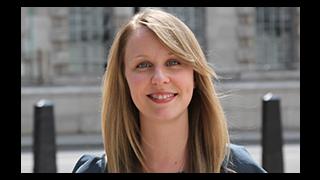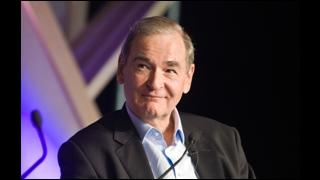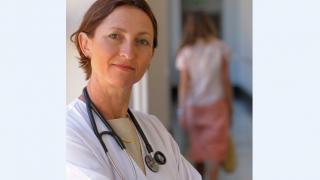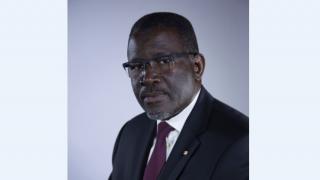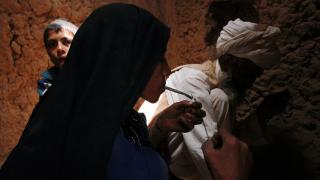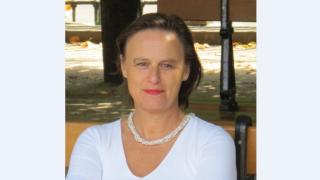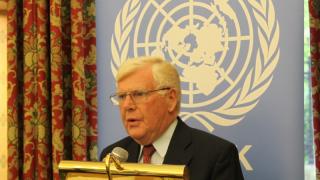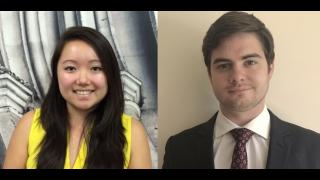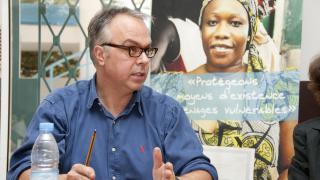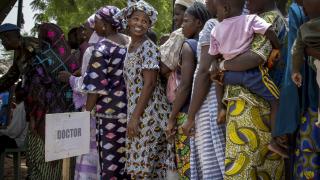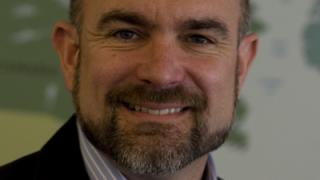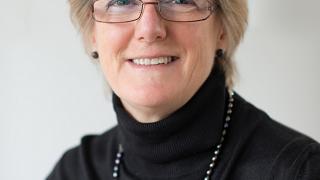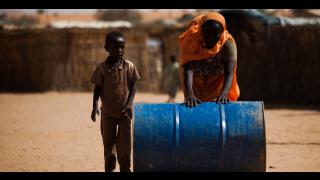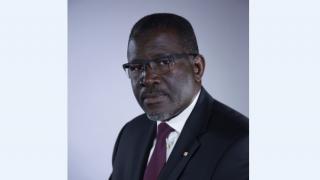
An inevitable part of humanitarian work is going into areas of crisis, but when I told my family I would be going to Guinea and Sierra Leone, instead of the usual proud encouragement, I received a timid: “Please stay safe.” Ebola inspires this kind of fear. It is also a fertile ground for rumours, stigma and discrimination.
I had to go to fight this stigma and discrimination, on the side of the hundreds of thousands whose lives or livelihoods are threatened. I had to go to be with Red Cross volunteers at the frontline, helping communities to respond to the multiple challenges that Ebola poses.
I knew before coming to the International Federation of Red Cross and Red Crescent Societies that our volunteers, embedded in vulnerable communities around the world, and often risking their lives to save lives, are an expression of humanity in action. Even so, my trip was a revealing one.
My first stop was Guinea where the outbreak began, taking the local population and the humanitarian community by surprise. Ebola was unknown in this region; it had previously been confined to the remote forests of the Democratic Republic of the Congo and Uganda. Now in Guinea it is killing doctors and their patients, and the already weak health systems cannot cope.
Meeting with the President of Guinea, the Prime Minister, Minister of Health and other officials, I was reassured of their commitment to spare no effort to respond effectively to the disease. Some progress has been made, but more vigilance, a greater sense of urgency and a scaled up response are needed to preserve the hard-won health and development gains.
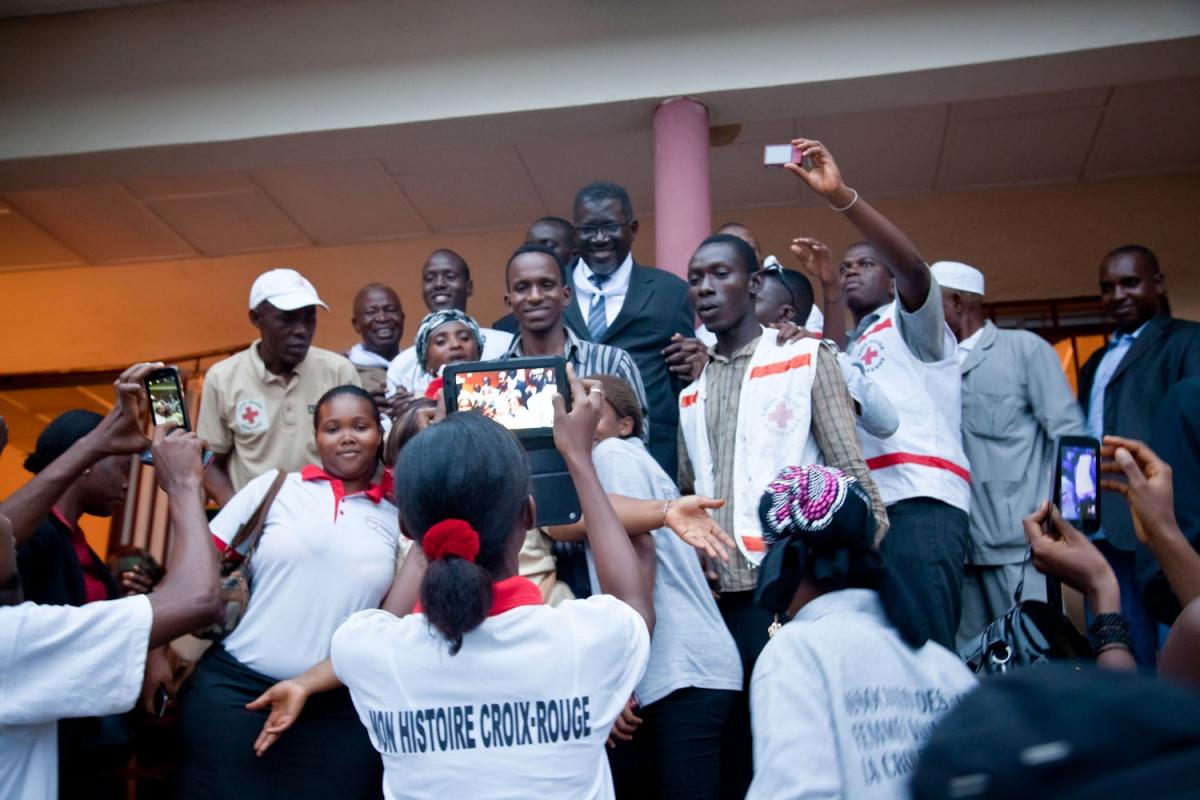 Thousands of Red Cross volunteers are currently working in five affected countries – Guinea, Sierra Leone, Liberia, Nigeria and Senegal. The Red Cross takes advantage of its strong community presence to create awareness about the best ways to prevent the spread of the disease. This presence also creates the kind of deep trust within communities that we need to handle some of the toughest jobs, most notably finding those at risk after contact with an Ebola patient, or adjusting traditional burying practices to prevent transmission.
Thousands of Red Cross volunteers are currently working in five affected countries – Guinea, Sierra Leone, Liberia, Nigeria and Senegal. The Red Cross takes advantage of its strong community presence to create awareness about the best ways to prevent the spread of the disease. This presence also creates the kind of deep trust within communities that we need to handle some of the toughest jobs, most notably finding those at risk after contact with an Ebola patient, or adjusting traditional burying practices to prevent transmission.
I also travelled to Sierra Leone, where, in addition to community mobilisation, we are setting up a field hospital near Kenema, one of the epicenters of the outbreak, to provide care to quarantined patients. This was done at the request of the country’s Minister of Health and the World Health Organization.
This is not part of our usual mandate, but exceptional times call for exceptional measures. The capacities of the government and aid agencies are already stretched, and the virus continues to spread.
Here, Red Cross volunteers are also handling body management. It is high-risk work as the bodies are extremely infectious. When volunteers of the Sierra Leone Red Cross were asked if they were ready to take this responsibility, their answer was simple: “If we don’t do it, who will?” Again, I felt gratitude and immense respect for the people who put themselves at risk in the service of others.
One thing has become abundantly clear. Ebola reveals the fragility of a country’s health system. We cannot afford to lose nurses, doctors and other healthcare workers, especially where there are already so few. Yet they were the first victims of the epidemic. As a result the crisis is much deeper than Ebola deaths: virtually almost all healthcare has come to a halt. This makes the challenge even greater.
We cannot do this alone. It requires commitment from the leadership of affected countries and other countries at risk, as well as from governments, corporations and aid organisations worldwide. We also need a critical mass of support on the ground and active community engagement. Collaboration at both community and global levels is the only way that we will prevent the spread of Ebola.
We need to act fast, learn faster and be flexible to adapt to a quickly evolving situation. And as it may take months to tackle the challenge, we need sustained attention: do not let this become another silent disaster.
Elhadj As Sy is the Secretary General of the International Federation of Red Cross and Red Crescent Societies, and has previously worked for the Global Fund to fight AIDS, TB and malaria as well as for UNAIDS and UNICEF
Photo: IFRC Secretary General Elhadj As Sy is welcomed by more than 200 volunteers at the Guinea Red Cross national headquarters © IFRC/Benoit Matsha-Carpentier

